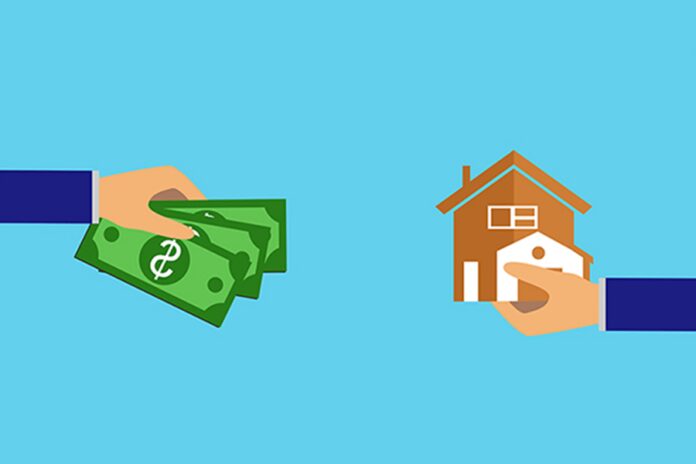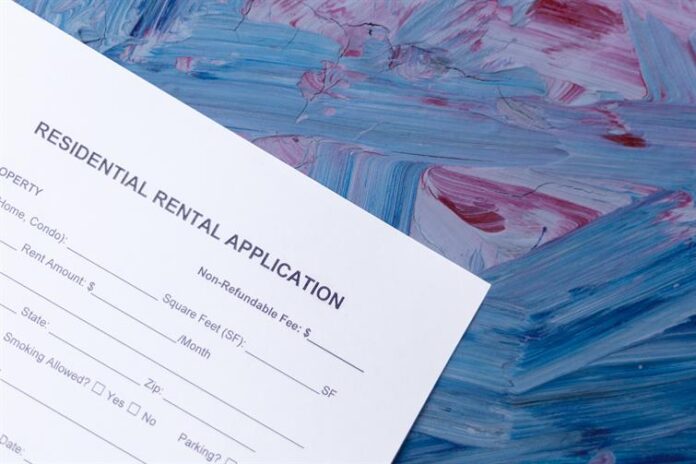Over the last several years, especially since the start of the COVID-19 pandemic, more people have turned to alternative investment strategies to generate passive income. Real estate has been a particularly lucrative and popular option for many people, especially given the current state of the market.
If you’re interested in investing in a rental property, here are seven tips that are suitable for beginners.
1. Think Long-Term

It’s critical when purchasing an investment property to think long-term. Your rental property brings in two different types of return.
One is through monthly renters, the other through appreciation. Eventually, you’ll be ready to sell your rental property for a profit.
Of course, if you’re smart you’ll also want to consider repairing and renovating the property as part of your long-term goals. According to JDHostetter, investing in a new roof can increase your home’s resale value by at least $17,500.
Take a look at ways to renovate your property over time. Make sure to include these factors in your budgeting prior to purchasing any property.
2. Understand What It Takes to be a Landlord

Being a landlord is a full-time job. It’s more than collecting checks on the first of the month to deposit in your bank account. The responsibilities of a landlord consist of many functions, including but not limited to:
- Background checks
- Rental property showings
- Maintenance and repairs
- Necessary renovations
- Post listings online
- Accounting
- Evictions
- Pest control
- Legally binding contracts
Many people who seek to become landlords will typically enlist the help of a property management company. This is a third-party business that will relieve you from handling the not-so-fun tasks, so you can focus more on investing in other properties to expand your income.
3. Follow the 1% Rule

When you initially look at properties to purchase, you have to think of the activity as a business. The goal is to see a profit, which means you need to be smart about your initial investments.
Rent should be at least 1% of the purchase price from the income property if you expect to see a positive return on investment (ROI).
4. Protect Yourself and Your Property

Insurance exists for a reason. Whether it’s for a tenant who won’t pay the rent or a fire caused by faulty wiring, you’ll want to be covered by landlord’s insurance.
Then you’ll have protection from unfortunate events or liabilities that arise for both yourself and the property. Say for instance a pipe bursts and causes a massive flood throughout your building.
Not only will your property and all of the units affected by the flood require repairs, but you’re also going to receive angry phone calls from tenants. Their belongings or expensive electronics might have been damaged or destroyed by water.
Landlord insurance protects you from being held liable so your tenants can’t sue you. Instead, the insurance helps to cover most of the losses.
Each of your tenants should also have renter’s insurance. As in the above catastrophe, their personal belongings would be covered under their own policies, which removes the burden from your shoulders.
5. Know Where to Invest Your Money

Aside from the ostensible property you acquire, there are many other ways you ought to think about investing in your property. Finding good, reliable, and safe tenants is essential to the vitality of your rental property.
In order to attract ideal tenants, you have to circulate a quality listing. The more appealing your listing, the more people will apply to live there.
In turn, this gives you more options to choose from when it comes time to select the right mix of renters for your building.
Invest in high-quality, professional photography of your units. Put money into a professional stager to set up the model unit people will walk through.
It may even be worth outsourcing the work for your online listings to a professional company.
6. Know How to Set Rent Price

It’s one thing to own a rental property. It’s another to get people actively moving into your available units.
You can expect, especially as a first-time rental property investor, to experience a period when you have empty units. The longer those units remain vacant, the more money you’ll lose.
You can avoid this by analyzing the rental property market in your neighborhood. According to the New York Post, investors should look at comparable properties in their specific market and asset class.
Look at what other similar rentals are going for and how yours compares. If your rates are too high, you won’t receive any applications.
Set your price too low and you’ll risk attracting unreliable applicants. And you obviously don’t want to go lower than your budget allows.
This is why it’s essential to take this facet into serious consideration when you do your initial budget, rather than waiting until renovations are completed. Do the appropriate research and seriously evaluate the competition.
7. Always Require a Rental Application

We can’t exaggerate how important finding the right tenants is. Running a solid application process should weed out anyone who doesn’t fit your criteria.
This will entail getting all the usual information such as applicants’ names, current addresses, and contact details. It also will provide a way to learn more about each person’s previous rental history.
Find out who their last landlord was, so you can check to see if they stayed in good standing. It’s perfectly acceptable to ask for Social Security numbers as well, so you can perform a proper background check.
This is also when you’ll learn more about the prospective tenant’s current job situation and annual income. A prospective tenant might not have a pay stub to provide with the application, though; perhaps they’re looking to move into town to accept a new job.
You can ask to have their new employer provide a letter that states your position with the firm, their start date, and their anticipated annual income. You can also request their employer’s contact information.
You don’t want to find out down the road you accepted a tenant who forged a letter.
Summary

The process of becoming a landlord and owning your first rental property comes at a price in terms of both time and money. What’s most important is to educate yourself on the investment side of the matter, and learn the ins and outs of the industry the way you would with any business. Last, but certainly not least, always try to land the best possible tenants for your building.









